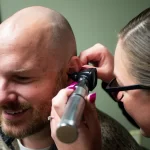Cataracts are a prevalent eye condition among seniors, developing gradually in one or both eyes and potentially impacting daily activities and quality of life if left untreated. The solution to this problem is cataract surgery, an effective but costly procedure that replaces the damaged lens with a new artificial one. The cost of this surgery can vary significantly, but Medicare Plan B and Advantage can cover a portion of it. It’s crucial to treat cataracts promptly as they can lead to various vision problems like blurred or cloudy vision, light sensitivity, and more, which can pose health and safety risks.
Identifying the Signs That Indicate a Need for Cataract Surgery
Related Topics (Sponsored Ads):

Below, we delve into the signs and symptoms of cataracts, the diagnostic process, the potential costs of the procedure, and necessary pre and post-operative care.
Identifying Cataracts
The first step in determining if you need cataract surgery is to monitor your vision quality.
Common cataract symptoms include:
- Blurred vision: Your vision may seem foggy or cloudy.
- Light sensitivity: Bright lights may seem overly bright or produce glare and halos.
- Night vision difficulties: You may struggle to see in low light conditions.
- Color fading or yellowing: Colors may seem less vibrant or have a yellowish tint.
- Double vision: You may see two images of the same object, either horizontally or vertically.
Professional Eye Examination
If you suspect you have a cataract, schedule an appointment with an ophthalmologist for a professional evaluation. The doctor will conduct a comprehensive eye exam to check for cataracts and assess their severity. Tests may include:
- Visual acuity test: This test measures your vision at various distances.
- Slit-lamp exam: This exam uses a microscope to examine your eye’s front and back.
- Dilated eye exam: Eye drops will dilate your pupils, allowing the doctor to examine your lens and retina in detail.
Based on these tests, the eye doctor can determine if cataract surgery is necessary.
Cataract Surgery Costs
The cost of cataract surgery can vary based on factors like surgery location, the type of artificial lens used, and the surgeon’s fees. The American Society of Cataract and Refractive Surgery estimates the average cost of cataract surgery in the United States to be between $3,500 and $6,000 per eye. However, this is an estimate, and actual costs may be higher or lower depending on your specific situation.
Medicare Coverage
Medicare typically covers cataract surgery if it’s medically necessary, meaning cataracts significantly interfere with your daily activities. Medicare Part B covers 80% of the surgery cost, including the artificial lens. However, you’re responsible for the remaining 20%, along with any applicable deductibles or copayments. If you have a Medicare Advantage plan, the coverage for cataract surgery might be even better, depending on the specific plan. It’s worth checking with your healthcare provider to determine your specific coverage and out-of-pocket costs.
Preparing for Surgery
If your eye doctor determines that cataract surgery is necessary, you’ll need to prepare for the procedure. Steps may include:
- Discontinuing certain medications: Your doctor may ask you to stop taking certain medications that could increase bleeding risk, like aspirin or blood thinners.
- Arranging transportation: You’ll need someone to drive you home after the procedure, as you won’t be able to drive or use public transportation safely.
- Arranging for help: You may need assistance with daily activities for a few days after the procedure.
- Following pre-surgery instructions: Your doctor will give you specific instructions on how to prepare for the surgery, such as when to stop eating and drinking.
- Asking questions: If you have any concerns or questions about the surgery, don’t hesitate to ask your doctor.
Post-Surgery Recovery
After cataract surgery, you’ll need some time to recover. The recovery process usually takes a few weeks, during which you may experience mild discomforts, such as itching or slight pain. During this period, it’s crucial to avoid activities that could increase the risk of infection and irritation, like swimming or using a hot tub.
You’ll also need to use eye drops as directed by your doctor to prevent infection and promote faster better healing. Make sure to attend all follow-up appointments with your doctor to ensure your eye is healing properly.
Concluding Thoughts
The thought of cataract surgery can be daunting, but neglecting a cataract can have serious, even life-threatening consequences. Once you’ve recovered from the surgery, you’ll notice a significant improvement in your vision and overall quality of life.










